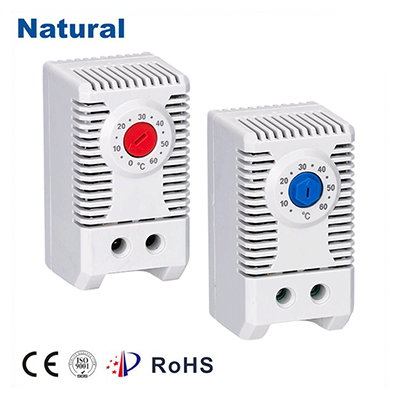文章:

Temperature control is a crucial aspect of modern life, impacting everything from the comfort of our homes to the efficiency of industrial processes. Among the various technologies that enable precise temperature regulation, the bimetal thermostat stands out as a remarkable innovation. In this article, we will delve into the fascinating world of bimetal thermostats, exploring their principles, applications, and significance in today’s technological landscape. Understanding the Bimetal Thermostat At its core, a bimetal thermostat consists of two different metal strips that are bonded together. These metals possess different coefficients of thermal expansion, meaning they expand and contract at different rates when subjected to temperature changes. Typically, the strips are made of materials like brass and steel, carefully selected to create the desired response. When exposed to temperature variations, the bimetal strip undergoes bending or warping due to the differing expansion rates of its constituent metals. This mechanical deformation is harnessed to control electrical circuits, making bimetal thermostats incredibly versatile in temperature regulation. Applications Across Industries Bimetal thermostats find application in a wide range of industries, making them indispensable in our daily lives. Here are a few notable applications: 1. Home Heating and Cooling In residential heating and cooling systems, bimetal thermostats are commonly used to maintain comfortable indoor temperatures. When the room temperature deviates from the desired setpoint, the bimetal strip bends, activating or deactivating the heating or cooling system to restore equilibrium. 2. Appliances Many household appliances, such as ovens, refrigerators, and irons, rely on bimetal thermostats for precise temperature control. These thermostats ensure that these appliances maintain the right temperature for cooking, food preservation, and ironing clothes, respectively. 3. Automotive Industry Automobiles benefit from bimetal thermostats in their engines to regulate coolant flow. This helps prevent the engine from overheating, ensuring optimal performance and longevity. 4. Industrial Processes In industrial settings, bimetal thermostats are essential for maintaining the desired temperature in equipment such as furnaces, kilns, and chemical reactors. Accurate temperature control is crucial for product quality and process efficiency. Advantages and Challenges Bimetal thermostats offer several advantages, including cost-effectiveness, reliability, and simplicity. They require minimal maintenance and can operate in harsh environments. However, they are not suitable for extremely precise temperature control applications, as their accuracy is limited compared to more advanced electronic systems. The Future of Temperature Control As technology continues to advance, electronic and digital temperature control systems are gaining popularity due to their precision and programmability. These systems often work in conjunction with bimetal thermostats, providing an additional layer of control and automation. Despite the growing use of electronic solutions, bimetal thermostats remain a steadfast and economical choice for many applications, particularly those that do not require pinpoint accuracy. Their durability and simplicity ensure they will continue to play a vital role in temperature control across various industries. In conclusion, bimetal thermostats are ingenious devices that have stood the test of time in temperature control. Their widespread use in homes, appliances, automobiles, and industrial processes highlights their importance in our daily lives. While electronic systems offer more precision, bimetal thermostats continue to thrive due to their reliability and cost-effectiveness. As technology evolves, these thermostats will adapt and remain a vital part of our quest to master temperature control.